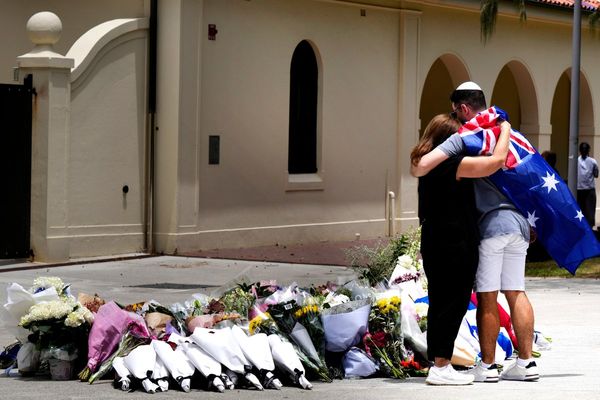The precarious state of general practice is the most concerning pressure on the healthcare system right now, says federal Health Minister Mark Butler, who has been meeting experts to brainstorm long- and short-term solutions, amid concerns the GP workforce could be on the brink of collapse.
Just days after GPs descended on Canberra to discuss shrinking incomes and fewer people joining the profession, Mr Butler met his Coalition counterpart, Anne Ruston, and Australian Medical Association (AMA) representatives for roundtable talks aimed at fixing a looming crisis.
Speaking after the meeting, AMA vice-president Danielle McMullen heralded the talks as constructive.
"I think that any crisis is an opportunity for reform, and we have heard today that there are plenty of good ideas out there to train the GPs of the future, to make sure that we have got the workforce that we need," Dr McMullen said.
GP enrolments have been steadily falling, with just one in eight medical graduates choosing to enter the specialty.
That is contributing to a predicted workforce shortage of 11,000 GPs by the end of the decade.
"At one level, of all the pressures on the healthcare system, the thing that worries me the most right now is the state of general practice, which I think is the most parlous state it's been in in the 40-year history of Medicare," Mr Butler said ahead of the meeting.
"Patients tell me it's never been harder to see a doctor than it is right now.
"GPs tell me they're exhausted and they're very worried about the financial viability of their practice."
With the rebate failing to keep pace with inflation — increasing just $6 over 14 years — Dr McMullen said the amount of money GPs received from Medicare was contributing to the issue.
"It's increasingly difficult for GPs to provide that quality, comprehensive care when the patient rebate remains so low," Dr McMullen said.
Not funding changes now more costly in future
GP shortages have long been felt in regional Australia but they are now increasingly impacting metropolitan clinics across the country.
Mount Druitt GP Kean-Seng Lim said his practice was struggling with the burden of an increasing number of patients with more complex and chronic illnesses, which meant they needed longer and more-expensive consultations.
"We're seeing increased costs of staff, increased costs of everything," Dr Lim said.
"This means there's been an increasing squeeze on this practice, more and more."
Diagnosing the problem is much easier than prescribing a solution.
Doctors want further federal investment, but sky rocketing health costs are already putting enormous pressure on the budget.
However, with GPs arguing they are facing the prospect of having to turn more patients away or shut their doors altogether, they say not investing more money could also prove costly in the long run.
"If we do not invest in general practice, now, the consequences are going to be quite easy to see," Dr Lim said.
"There will be an increase in ill health and an increase in total health costs over the next few years.
"And that will be seen, initially, by increased presentations for emergency departments, longer bed stays in hospitals, and increased rates of readmissions to hospitals.
"So, what will happen is, if you don't spend money at the front end, you end up spending money at the back end."







